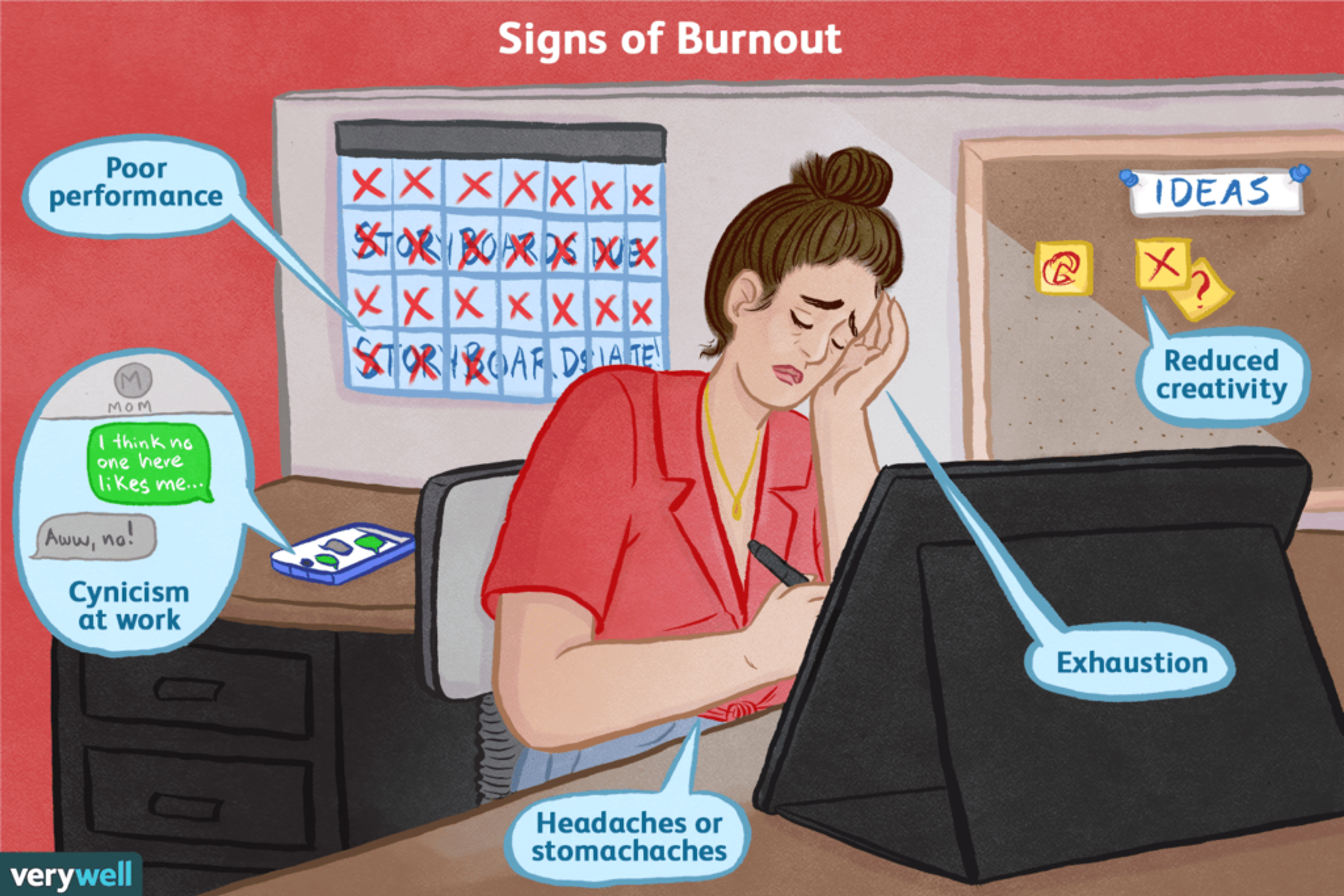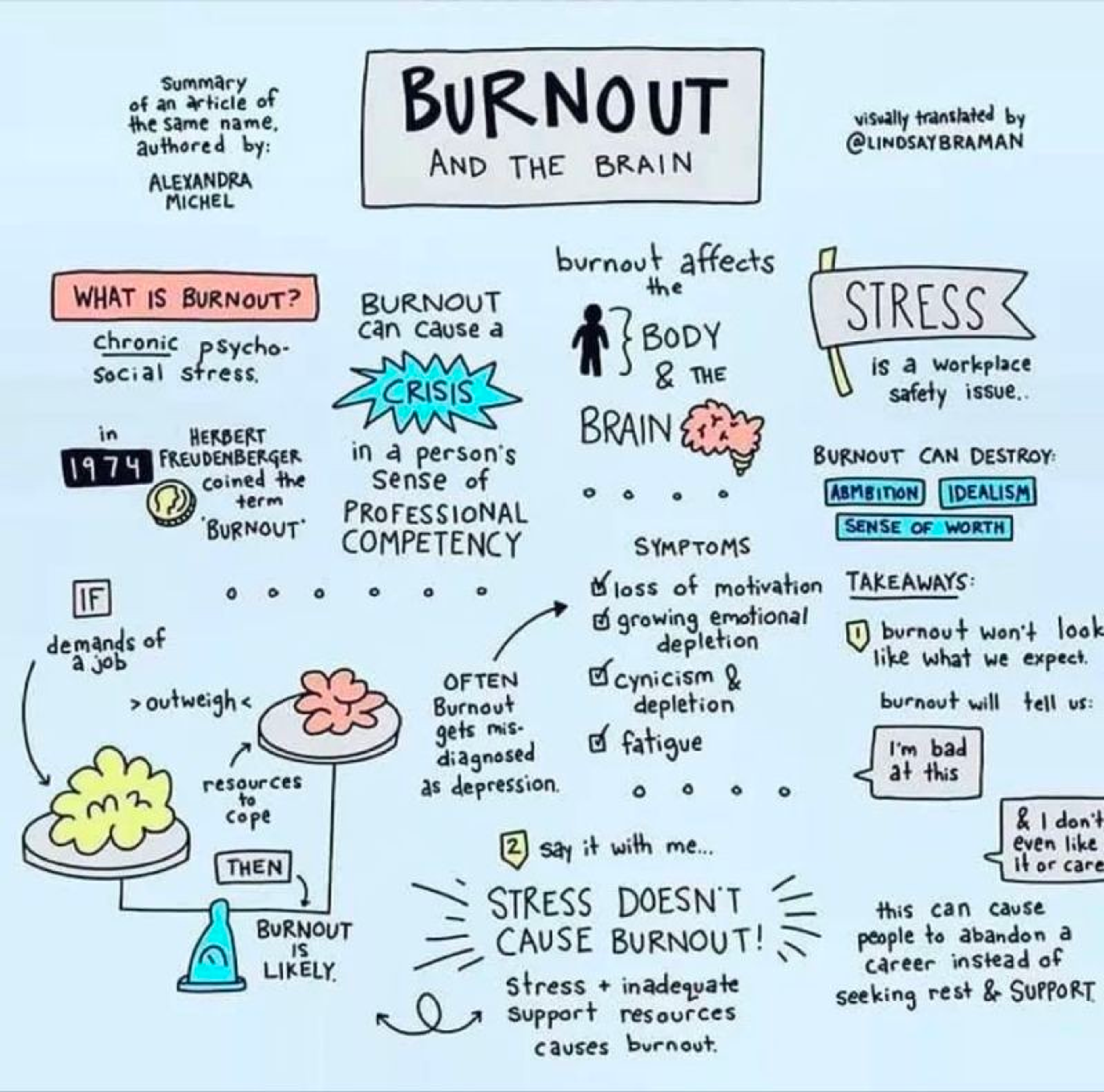The Burnout Generation: Navigating the Stress Epidemic of the Modern World

Sania Parween
Published
“Burnout generation” is not a widely recognized or formal classification like generational cohorts such as Baby Boomers, Generation X, Millennials, or Generation Z. It is indeed a colloquial term that is used to describe and highlight the challenges and stressors faced by a specific group of people, especially the young individuals in today’s demanding and breakneck world. The individuals categorized under this informal generational term are susceptible to experiencing burnout due to various societal and working factors.
What is Burnout?
Burnout, also written as burn-out, is “fatigue, frustration, or apathy resulting from prolonged stress, overwork, or intense activity.” It’s a feeling you get when you’re overwhelmed and simply don’t have any energy to devote yourself to a given task, activity, or career. Earlier the word burnout was used more as a self-diagnosis or casual expression but in 1974, a psychologist named Herbert Freudenberger published an article “Staff Burnout” where he marked the formal study of burnout as a medical syndrome. Freudenberger, with the help of the idiom burning (oneself), defined and popularised ‘workplace burnout’ as “becoming exhausted by making excessive demands on energy, strength, or resources.” Since then it has been included in the discussions and research on mental health issues. However, it was in May 2019 that burnout became an official diagnosis.

In today’s day-to-day life where we are just taught to rush after success and be a machine, burnout has indeed become prevalent and a significant concern across various demographic groups, and professions, affecting individuals of all generations. For instance, Generation X (born 1965-1980) had to navigate the transition to digital technology and increased workplace demand for which they faced burnout from juggling work and family responsibilities. Similarly, the youngest generation, Generation Z faces burnout from the constant use of digital technology, high competition, academic expectations, and early career pressure. While technology has brought convalescence, it has also blurred the boundaries between work and personal lives. The constant need for connectivity makes it challenging for individuals to completely disengage from work leading to burnout. Now are the days when you close your eyes after scrolling reels on Instagram and wake up to check emails.
Every desi mother has a way of blaming mobile phones for every inconvenience concerning their child, and in this scenario, they do step up as ‘right’ to a good extent. The rise of social media has led to increased feelings of inadequacy and stress where individuals spend most of their time comparing their lives to others. However, technology can’t be solely blamed when we ourselves make craptacular choices, especially lifestyle choices such as lack of exercise, unhealthy eating habits, and insufficient sleep which exacerbate burnout. Apart from high work demands, economic pressure, and balancing multi-tasks, events like the COVID-19 pandemic have contributed to introducing new stressors, health concerns, and disrupted routines, amplifying the burnout of many individuals.

It is oftentimes burnout treated as synonymous with depression but depression is a diagnosable mental health condition whereas burnout is not. These both can have mental health-related mood disorders but unlike depression, burnout tends to be a response to a specific situation like working more hours than usual or being deeply involved in something rigorous going on in life. Burnout generally leads to emotional exhaustion, diminishing motivation and enthusiasm, and causing feelings of sadness, and hopelessness which when prolonged eventually take the shape of frequent breakdowns and anxiety disorders. Chronic stress associated with burnout, also affects the physical health of individuals by weakening the immune system and disrupting sleep patterns.
Overall, burnout has a cascading effect on mental and physical health at an alarming rate. Hence, it is necessary to emphasize the importance of recognizing and addressing it early to prevent the long-term consequences. Burnout may affect different people differently but ultimately it is the result of prolonged stress, excessive work demands, and inadequate coping mechanisms. Self-care practices, work-life balance approaches, mental health resources, flexible work environment, and healthy lifestyle choices should be promoted in battling both the individual and systemic factors leading to burnout which in the fullness of time will turn out better well being for everyone.
Sania Parween is a student pursuing English Literature from Jamia Millia Islamia.
Edited by: Ambrisha Zubeen






